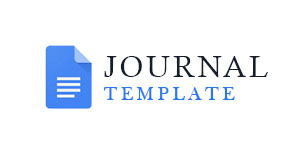PERILAKU KONSUMEN DALAM MEMBELI PRODUK HALAL DI KOTA BANDUNG
Abstract
Keywords
Full Text:
PDFReferences
Abdul-Talib, A. N., & Abd-Razak, I. S. (2013). Cultivating export market oriented behavior in halal marketing: Addressing the issues and challenges in going global. Journal of Islamic Marketing, 4(2), 187–197.
Ahmad Alserhan, B., & Ahmad Alserhan, Z. (2012). Researching Muslim consumers: do they represent the fourth-billion consumer segment? Journal of Islamic Marketing, 3(2), 121–138.
Ahmad, J. (2003). Marketing in a multicultural world: The interplay of maketing, ethnicity and consumption. European Journal of Marketing, 37(11/12), 1599–1620.
Ajzen, I. (1985). From intention to action: A theory of planned behaviour : From Cognitions to Behaviours. Springer-Verlag. New York.
Ajzen, I. (1991). The theory of planned behavior. Organizational Behavior and Human Decision Processes, 50(2), 179–124.
Ali, Adnan, Ali, A., Xiaoling, G., Sherwani, M., & Hussain, S. (2018). Expanding the theory of planned behaviour to predict Chinese Muslims halal meat purchase intention. British Food Journal, 120(1), 1–17.
Ali, Afzaal, Xiaoling, G., Sherwani, M., & Ali, A. (2017). Factors affecting Halal meat purchase intention: Evidence from international Muslim students in China. British Food Journal, 119(3), 527–541.
Ali, F., Rasoolimanesh, S. M., Sarstedt, M., Ringle, C. M., & Ryu, K. (2018). An assessment of the use of partial least squares structural equation modeling (PLS-SEM) in hospitality research. International Journal of Contemporary Hospitality Management, 30(1), 514–538.
Alserhan, B. A. (2010). On Islamic branding: Brands as good deeds. Journal of Islamic Marketing, 1(2), 101–106.
Amat, M., As’hari, N., & Sundram, V. (2014). The Influence of Muslim Consumer’s Perception Toward Halal Food Product on Attitude at Retail Stores. SSRN.
Ambali, A. R., & Bakar, A. N. (2014). People’s Awareness on Halal Foods and Products: Potential Issues for Policy-makers. Procedia - Social and Behavioral Sciences, 121, 3–25.
Amin, H., Abdul-Rahman, A. R., & Razak, D. A. (2014). Theory of Islamic consumer behaviour: An empirical study of consumer behaviour of Islamic mortgage in Malaysia. Journal of Islamic Marketing, 5(2), 273–301.
Awan, H. M., Siddiquei, A. N., & Haider, Z. (2015). Factors affecting Halal purchase intention – evidence from Pakistan’s Halal food sector. Management Research Review, 38(6), 640–660. h
Aziz, Y. A., & Chok, N. V. (2013). The Role of Halal Awareness, Halal Certification, and Marketing Components in Determining Halal Purchase Intention Among Non-Muslims in Malaysia: A Structural Equation Modeling Approach. Journal of International Food and Agribusiness Marketing, 25(1), 1–23.
Becker, B. W., Berry, L. L., & Parasuraman, A. (2006). Marketing Services: Competing Through Quality. Journal of Marketing, 56(2), 132–134.
Briliana, V., & Mursito, N. (2017). Exploring antecedents and consequences of Indonesian Muslim youths’ attitude towards halal cosmetic products: A case study in Jakarta. Asia Pacific Management Review, 22(4), 176–184.
DeSilver, D., & Masci, D. (2017). World’s Muslim population more widespread than you might think. Retrieved July 4, 2019, from https://www.pewresearch.org/fact-tank/2017/01/31/worlds-muslim-population-more-widespread-than-you-might-think/
Diamant, J. (2019). The countries with the 10 largest Christian populations and the 10 largest Muslim populations. Retrieved July 4, 2019, from https://www.pewresearch.org/fact-tank/2019/04/01/the-countries-with-the-10-largest-christian-populations-and-the-10-largest-muslim-populations/
E. Rios, R., E. Riquelme, H., & Abdelaziz, Y. (2014). Do halal certification country of origin and brand name familiarity matter? Asia Pacific Journal of Marketing and Logistics, 26(5), 665–686.
Elseidi, R. I. (2018). Determinants of halal purchasing intentions: evidences from UK. Journal of Islamic Marketing, 9(1), 167–190.
Essoo, N., & Dibb, S. (2004). Religious Influences on Shopping Behaviour: An Exploratory Study. Journal of Marketing Management, 20(7/8), 683–712.
Fakih, K., Assaker, G., Assaf, A. G., & Hallak, R. (2016). Does restaurant menu information affect customer attitudes and behavioral intentions? A cross-segment empirical analysis using PLS-SEM. International Journal of Hospitality Management, 57, 71–83.
Gayatri, G., Hume, M., & Sullivan Mort, G. (2011). The role of Islamic culture in service quality research. Asian Journal on Quality, 12(1), 35–53.
Golnaz Rezai, Abidin, Z., Nasir, M., & Chiew, E. (2010). Non-Muslims ’ awareness of Halal principles and related food products in Malaysia. International Food Research Journal, 17, 667–674.
Hair, J.F., Hult, G.T.M., Ringle, C.M. and Sarstedt, M. (2017). A Primer on Partial Least Squares Structural Equation Modeling (PLS-SEM). Sage. Los Angeles.
Hamdan, H., Issa, Z. M., Abu, N., & Jusoff, K. (2013). Purchasing Decisions among Muslim Consumers of Processed Halal Food Products. Journal of Food Products Marketing, 19(1), 54–61.
Hearty, Á. P., McCarthy, S. N., Kearney, J. M., & Gibney, M. J. (2007). Relationship between attitudes towards healthy eating and dietary behaviour, lifestyle and demographic factors in a representative sample of Irish adults. Appetite, 48(1), 1–11.
Jarvenpaa, S. L., Tractinsky, N., & Vitale, M. (2000). Consumer trust in an Internet store. Information Technology and Management, 1(1/2), 45–71.
Karim, J. A., Rahman, S. A., & Ariffin, Z. Z. (2011). Do Muslims Purchase Muslim Products ? Muslim Centric Ness : An Exploratory Study. In 2011 International Conference on E-business, Management and Economics (pp. 60–65).
Lada, S., Harvey Tanakinjal, G., & Amin, H. (2009). Predicting intention to choose halal products using theory of reasoned action. International Journal of Islamic and Middle Eastern Finance and Management, 2(1), 66–76.
Maman, U., Mahbubi, A., & Jie, F. (2018). Halal risk mitigation in the Australian–Indonesian red meat supply chain. Journal of Islamic Marketing, 9(1), 60–79.
Mokhlis, S. (2006). The effect of religiosity on shopping orientation : An exploratory study in Malaysia. Journal of American Academy of Business, 9(1), 64–74.
Mokhlis, S. (2009). Religious differences in some selected aspects of consumer behaviour : A Malaysian study. Journal of International Management Studies, 4(1), 67–76.
Nasser, M. A.-, Yusoff, R. Z., Islam, R., & Naser, A. Al. (2014). Effects of Consumers’ Trust and Attitude toward Online Shopping. American Journal of Economics and Business Administration, 6(2), 58–71.
Nazlida Muhamad, Vai Shiem Leong, & Normalisa Md Isa. (2017). Does the country of origin of a halal logo matter? The case of packaged food purchases. Review of International Business and Strategy, 27(4), 484–500.
Nurhayati, T., & Hendar, H. (2019). Personal intrinsic religiosity and product knowledge on halal product purchase intention Role of halal product awareness. Journal of Islamic Marketing.
Pew Research Center. (2011). The future of the global muslim population. Retrieved July 4, 2019, from https://www.pewforum.org/2011/01/27/the-future-of-the-global-muslim-population/
Rajagopal, S., Ramanan, S., Visvanathan, R., & Satapathy, S. (2011). Halal certification: Implication for marketers in UAE. Journal of Islamic Marketing, 2(2), 138–153.
Safiek Mokhlis. (2009). Relevancy and Measurement of Religiosity in Consumer Behavior Research. International Business Research, 2(3), 75–84.
Said, M., Hassan, F., Musa, R., & A, N. (2014). Assessing Consumers ’ Perception , Knowledge and Religiosity on Malaysia ’ s Halal Food Products. Procedia - Social and Behavioral Sciences, 130, 120–128.
Sandıkcı, Ö. (2011). Researching Islamic marketing: past and future perspectives. Journal of Islamic Marketing, 2(3), 246–258.
Sayogo, D. S. (2018). Online traceability for halal product information: perceptions of Muslim consumers in Indonesia. Journal of Islamic Marketing, 9(1), 99–116.
Sekhon, H., Ennew, C., Kharouf, H., & Devlin, J. (2014). Trustworthiness and trust: influences and implications. Journal of Marketing Management, 30(3–4), 409–430.
Shah Alam, S., & Mohamed Sayuti, N. (2011). Applying the Theory of Planned Behavior (TPB) in halal food purchasing. International Journal of Commerce and Management, 21(1), 8–20.
Sherwani, M., Ali, A., Ali, A., Hussain, S., & Zadran, H. G. (2018). Determinants of muslim consumers’ Halal meat consumption: applying and extending the theory of planned behavior. Journal of Food Products Marketing, 24(8), 960–981.
Soon, J. M., Chandia, M., & Regenstein, J. Mac. (2017). Halal integrity in the food supply chain. British Food Journal, 119(1), 39–51.
Suhartanto, D, Farhani, N. H., Muflih, M., & Setiawan. (2018). Loyalty intention towards Islamic Bank: The role of religiosity, image, and trust. International Journal of Economics and Management, 12, 137–151.
Suhartanto, Dwi, Gan, C., Sarah, I. S., & Setiawan, S. (2019). Loyalty towards Islamic banking: service quality, emotional or religious driven? Journal of Islamic Marketing.
Vanany, I., Soon, J. M., Maryani, A., & Wibawa, B. M. (2019). Determinants of halal-food consumption in Indonesia. Journal of Islamic Marketing.
Wilson, J. A. J., Belk, R. W., Bamossy, G. J., Sandikci, Ö., Kartajaya, H., Sobh, R., … Scott, L. (2013). Crescent marketing, Muslim geographies and brand Islam: Reflections from the JIMA Senior Advisory Board. Journal of Islamic Marketing, 4(1), 22–50.
Worthington, E. L., Wade, N. G., Hight, T. L., Ripley, J. S., McCullough, M. E., Berry, J. W., … O’Connor, L. (2003). The Religious Commitment Inventory-10: Development, refinement, and validation of a brief scale for research and counseling. Journal of Counseling Psychology, 50(1), 84–96.
Yunus, N. S. N. M., Rashid, W. E. W., Ariffin, N. M., & Rashid, N. M. (2014). Muslim’s Purchase Intention towards Non-Muslim’s Halal Packaged Food Manufacturer. Procedia - Social and Behavioral Sciences, 130, 145–154.
Zucker, L. G. (1986). Production of trust: Institutional sources of economic structure, 1840-1920. In Research in Organizational Behavior: An Annual Series of Analytical Essays and Critical Reviews (pp. 53–111). Greenwich: JAI Press.
DOI: https://doi.org/10.24952/tijaroh.v5i2.1849
Refbacks
- There are currently no refbacks.
Copyright (c) 2019 At-tijaroh: Jurnal Ilmu Manajemen dan Bisnis Islam

This work is licensed under a Creative Commons Attribution-ShareAlike 4.0 International License.














